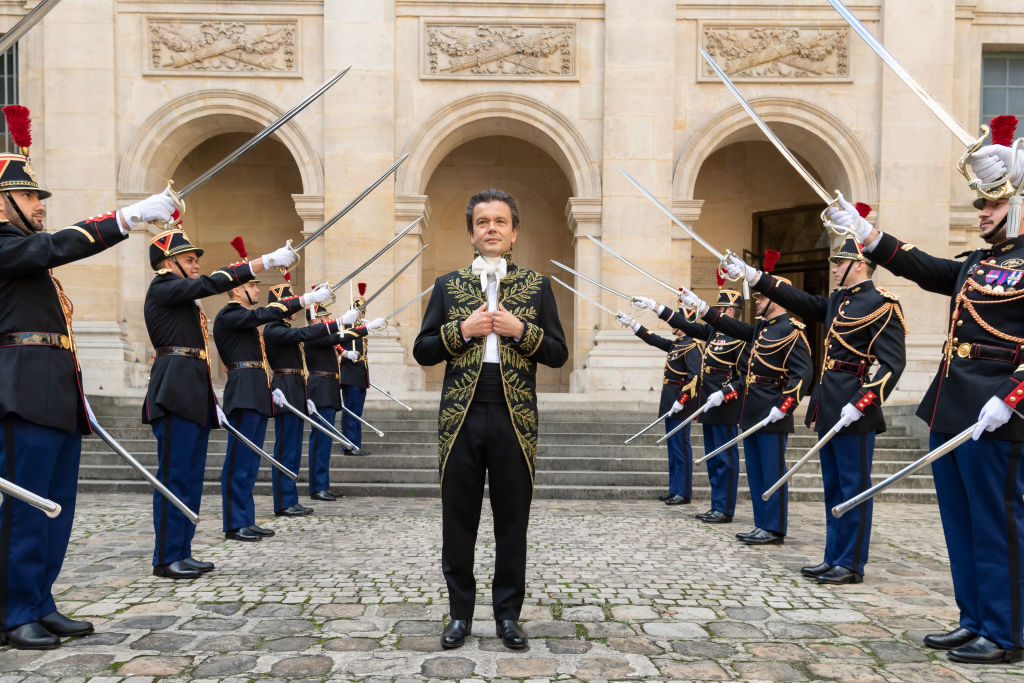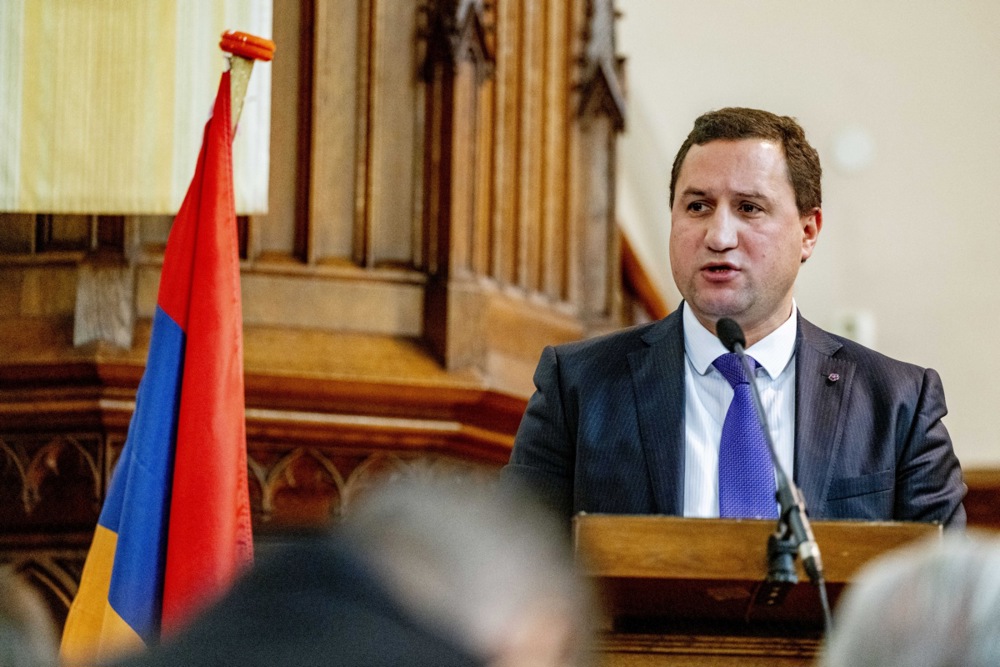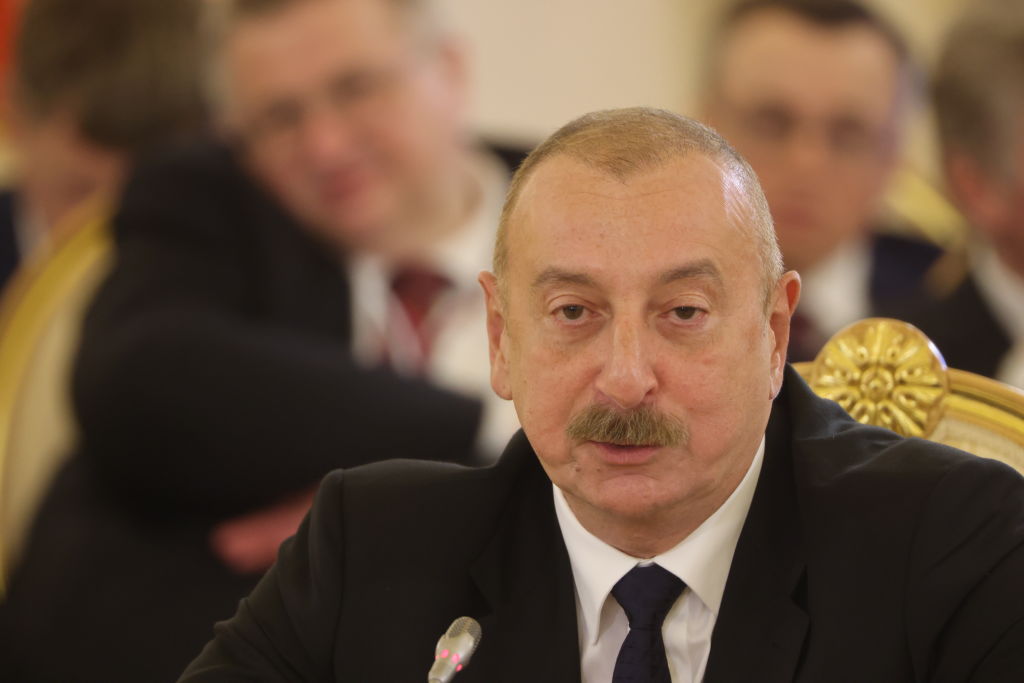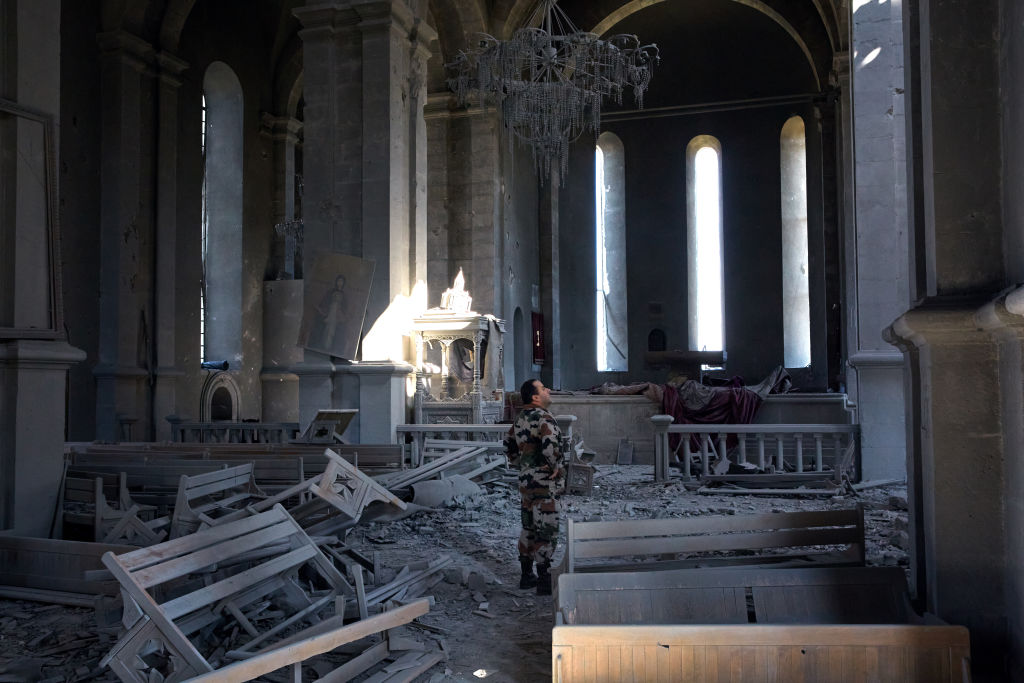MEPs are demanding that the European Union drop its agreements with Azerbaijan following the tragic events in Nagorno-Karabakh, the majority-Armenian enclave within Azerbaijan territory.
A resolution was overwhelmingly adopted at the European Parliament’s Strasbourg plenary on October 5, in which many MEPs call on the bloc to take a hard-line approach.
While EU institutions such as the European Council and European Commission are trying to the tread a fine line regarding the conflict in the region, it appears that the Parliament wants to come down hard on Azerbaijan.
In the wake of Russia’s invasion of Ukraine, the EU has become more reliant on Azerbaijani natural gas. While EC President Ursula von der Leyen has described the nation as a “trustworthy” partner for the EU, MEPs are calling for the bloc to end the gas dependency, too.
A draft version of the resolution regarding the situation in Nagorno-Karabakh “calls on the Commission to review its existing gas deal with Azerbaijan and suspend the agreement in the light of the most recent developments”.
“We have to stop with appeasement: there must be immediate consequences for the Aliyev [Azerbaijani] regime,” said Marina Kaljurand, an Estonian MEP for the centre-left Alliance of Socialists and Democrats (S&D) Group.
Conflict over Nagorno-Karabakh has been ongoing since the fall of the Soviet Union. Following that, the enclave was ruled by the unrecognised Armenia-backed breakaway Republic of Artsakh.
Azerbaijan forced the Nagorno-Karabakh Armenians to capitulate following a short offensive on September 19. This led to a mass exodus of more than 100,000 Armenians from the region, with the UN estimating that only about 1,000 of them remain in the enclave.
Those who fled did so despite Azerbaijani assurances that it would respect the minority rights of the Nagorno-Karabakh Armenians.
In an interview with Brussels Signal, Ambassador @VaqifS insisted that reports of ethnic cleansing and attacks on civilians in Nagorno-Karabakh were a “blatant lie”. https://t.co/TTMVwgmcax
— Brussels Signal (@brusselssignal) September 29, 2023
Anna Fotyga, a leading Polish MEP of the European Conservative and Reformists (ECR) Group, was critical of Azerbaijan’s move.
She said that even within internationally recognised territories, the use of force raises justified and great concern, especially when it leads “to the effective depopulation of this territory”.
The Parliament’s draft resolution “strongly condemns the military offensive launched by Azerbaijan in the Nagorno-Karabakh region”, which it said was “in clear violation of the 2020 Ceasefire Agreement”.
While Nagorno-Karabakh and the surrounding provinces had been occupied by the Republic of Artsakh since the 1990s, in 2020 the Azerbaijani army surrounded the enclave in the second Nagorno-Karabakh war.
Both Armenia and Azerbaijan accuse each other of violating the Russia-brokered ceasefire and causing this year’s offensive. The Azerbaijani Government called the conflict a “counter-terrorist operation”.
Some believe that, given the EU’s need for Azerbaijani gas, there is little the bloc can do about the situation.
“It has become clear that this gas deal has given the Azerbaijani Government carte blanche to do as it pleases,” the draft resolution reads.
Kaljurand insisted the EU still had “political leverage and has to use it!”
Among possible actions, she said the bloc’s response should “include sanctioning of responsible Azerbaijani authorities, halting visa facilitation agreements, and the suspension of the gas deal”.
Besides the EU institutions, some Member States are taking matters into their own hands.
On October 3, the French Government announced it would deliver military equipment to Armenia. That was “so it can ensure its defence”, said French foreign minister Catherine Colonna.





